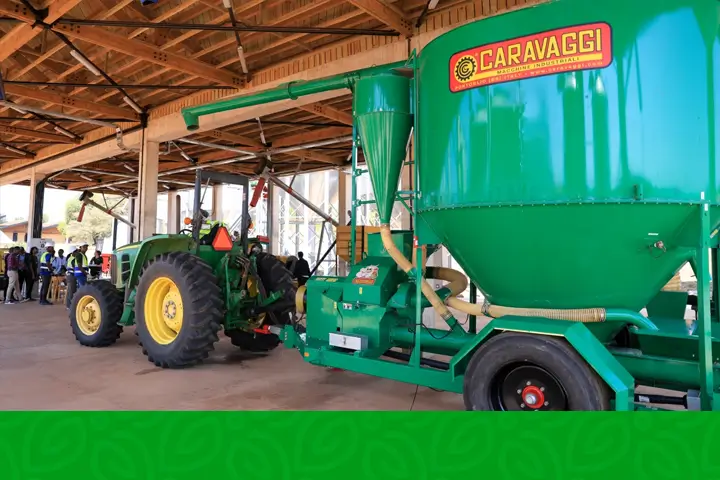
Empowering the Next Generation of Agricultural Innovators
In a resounding step towards revolutionizing agriculture in Rwanda and beyond, the Rwanda Institute of Conservation Agriculture (RICA) celebrated a significant milestone on Tuesday, August 8th. With the graduation of its inaugural cohort of 75 students, RICA is poised to inject innovation into the agricultural sector, fostering a paradigm shift that promises to modernize farming practices across Africa.
In a continent where 60% of its population—the youth—have been shying away from the agriculture sector, RICA stands as a beacon of hope, combating this trend by equipping the younger generation with the tools and knowledge to propel agricultural transformation. The traditional agricultural landscape is grappling with the challenges posed by climate change, necessitating a technologically advanced and modernized approach to secure food security.

At the heart of this transformative movement lies RICA, and we delve into the five compelling factors that distinguish this institution as it cultivates the next wave of agricultural pioneers.
1. Experiential Learning Model: Shaping Practical Experts
Emphasizing conservation agriculture, RICA employs an innovative educational model centered around experiential learning. This approach not only imparts sustainable and profitable farming techniques but also instills a deep-rooted commitment to environmental preservation. The institute’s curriculum revolves around six key enterprises—ranging from dairy production to food processing, and from farm mechanization to poultry and swine. By providing students with hands-on farming plots from the outset, RICA cultivates skills that extend beyond theory, preparing graduates to tackle real-world challenges.
2. Research and Internships: Fostering Collaborative Excellence
RICA fosters collaboration by forging partnerships with universities, research institutions, and agricultural organizations. This synergy results in valuable research endeavors that address local challenges and disseminate vital knowledge. Furthermore, students embark on a six-month internship journey, immersing themselves in high-profile companies within the agricultural value chain. This real-world exposure sharpens their understanding of market gaps and equips them to design tailored solutions.
3. Achieving Gender Parity: A Transformative Balance
Diversity and inclusivity are hallmarks of RICA’s admissions policy. With a rigorous selection process that considers agricultural knowledge, leadership potential, entrepreneurship skills, and English proficiency, RICA strives for gender parity. The institute collaborates closely with the Higher Education Council, ensuring that admission aligns with both entry requirements and a 50:50 gender ratio—a testament to its commitment to equality.
4. Sustainable Infrastructure: A Green Foundation
RICA’s campus sets a precedent for sustainable infrastructure. Situated across a sprawling 1300-hectare landscape, the institution showcases eco-friendly construction features, including rammed earth walls and compressed stabilized earth blocks (CSEBs). The campus boasts a solar power plant, potable water treatment facility, and wastewater treatment plant. The ingenuity of this design is epitomized by utilizing clean effluent water to irrigate crops on-site.
5. Creating Employment: Nurturing Economic Growth
RICA’s influence goes beyond education—it contributes significantly to employment. With a team exceeding 100 faculty and staff members, 85% of whom are Rwandan, the institution drives economic growth. This diverse team blends expertise from Africa, Europe, and the United States, fueling a dynamic environment. Commute convenience is ensured by a daily shuttle service from Kigali, enabling both on-campus living and seamless access for all contributors.
Agriculture’s Renaissance Starts Here
The Rwanda Institute of Conservation Agriculture stands as a trailblazer, challenging the status quo of agriculture in Africa. By championing experiential learning, fostering collaborative research, championing gender equality, embracing sustainable practices, and nurturing employment, RICA is sowing the seeds of a transformative agricultural renaissance. The world watches as RICA’s graduates emerge as ambassadors of change, heralding a brighter future for agriculture and food security across the continent.
Original Article written by Alice Kagina for The New Times
Stay updated with the latest farming tips and agriculture industry news from Africa by subscribing to our newsletter. Don’t miss out on valuable insights and updates. Follow us on Twitter, LinkedIn, and Facebook to join our farming community and stay connected with us.


















